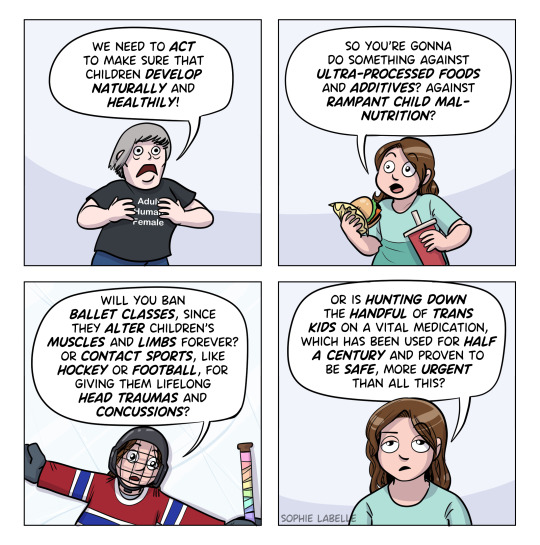Text
LOVE meistro. they crawled out of a piano, killed someone who misgendered them, served cunt, flirted with the doctor, was defeated by the power of beatles yaoi, and got dragged back into a piano. absolutely top tier character.
477 notes
·
View notes
Text
it's truly the tried and tested Doctor Who formula for a showrunner to say "yep we're doing a soft reboot of the show! this is a great opportunity for new viewers to jump on board!" and then immediately pivoting to lore heavy additions and continuing 60 year old character arcs and pulling random plots from obscure 90s novels.
206 notes
·
View notes
Text
Listen if the study of ancient humans doesn’t make you at least a little bit emotional idk what to say.
I started crying today at the museum because they had reconstructed the shoes of Otzi the iceman.
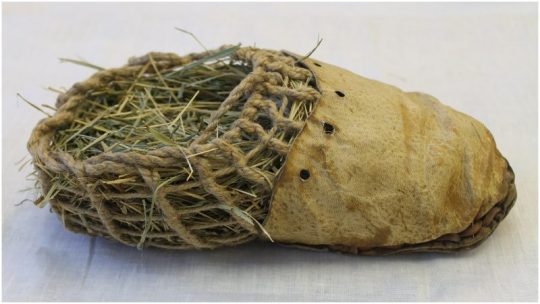
Either he or someone he knew who cared about him made these shoes out of grass and bear skin and twine and he was wearing them when he died over five thousand years ago.
And a Czech researcher and his students did reconstructions of these shoes and wore them to the same place where he died to test them out and they were like yep! These shoes are really cozy and comfy and didn’t give us blisters while hiking!
Is that not just the coolest shit ever????
38K notes
·
View notes
Text
online communities are so strange because people slip away so easily. you can be on here for years, folding people you've never met into the fabric of your daily life, and then they disappear, leaving only ghost posts scattered across tumblr behind. or their blog stays dormant, for weeks, months, years, until you're only still following them because you remember that they love sunflowers or they were kind to you when they didn't have to be or the last thing they posted was sad and raw and you still worry about them sometimes.
and sometimes they come back when you least expect it, years later, even, and there's this sudden rush of relief like there you are, there you are, even though you barely knew each other.
there's a strange kind of love to it. i don't know you and i want to hold your hand across miles and time zones and oceans. i can still see the imprint of you in this community you left. you don't anyone will notice or care when you're gone, but we notice and we care and we wish you well.
i hope you're all okay out there. i hope the sun is shining on your face and you are breathing deeply. i miss you.
72K notes
·
View notes
Text
There is something about proudly proclaiming a show "tumblrista catnip" that makes me emotional.
Something about how for years tumblrinas were ridiculed by show creators.
Something about Supernatural having a meta episode set at a convention with all the weirdo fans that made the main characters uncomfortable. Something something about Becky and the message that fangirls are gross and obsessive.
Something about Sherlock and the way fans were portrayed as crazy obsessive nutjobs for trying to figure out how he faked his death.
Something about creators mocking fandoms, dismissing them as freaks. Something about queer people not being welcome to engage in their creations because "why do you have to make everything gay?"
Something about the malicious culture of queerbaiting throughout the 2000s/2010s, followed by Bury Your Gays tropes across the media landscape because hell, you should be grateful we even gave you queer characters to begin with - and everyone dies in our show! You ain't special!
Something about Destiel questions being banned from conventions...
And then...
Something instead about Good Omens, and letting the story adapt naturally, embracing the fanbase and leaning into the fanservice.
Something about Our Flag Means Death, and the genuine outpouring of love and affection between cast, crew, and fandom that culminated in an explosion of fanworks that were never once mocked or deemed gross or wrong.
Something about Sandman, and staunchly digging in their heels on the queerness of it all, refusing to give in to the homophobes and instead avidly mocking THEM on social media rather than us.
Something about the writers hearing about fandoms favourite ships and excitedly stating that YES! We DID lean into that because it happened naturally and made sense.
Something about a firefighter coming out as bisexual after 7 seasons...
So yeah, something about a new high quality show made FOR US. By creators that love US. Respect US, and WANT our love.
Something about US FINALLY being a target audience for the best shows being made on TV now.
Tumblrista catnip. Creators saying "we made this for you. You are important. Your voices have been heard."
It just... all got a bit overwhelming for a moment there.
4K notes
·
View notes
Text
in b4 95% of all websites in june 2024 announce that "for security" they will only work with browsers that use manifest v3

104K notes
·
View notes
Text
Susan hot takes be like *fundamental misunderstanding of the text*
302 notes
·
View notes
Text
thoughts on the Pevensies returning home
Peter Pevensie was a strange boy. His mind is too old for his body, too quick, too sharp for a boy. He walks with a presence expected of a king or a royal, with blue eyes that darken like storms. He holds anger and a distance seen in veterans, his hand moving to his hip for a scabbard that isn't there - knuckles white. He moves like a warless soldier, an unexplained limp throwing his balance. He writes in an intricate scrawl unseen before the war, his letters curving in a foreign way untaught in his education. Peter returned a stranger from the war, silent, removed, an island onto himself with a burden too heavy for a child to bear.
Only in the aftermath of a fight do his eyes shine; nose burst, blood dripping, smudged across his cheek, knuckles bruised, and hands shaking; he's alive. He rises from the floor, knighted, his eyes searching for his sisters in the crowd. His brother doesn't leave his side. They move as one, the Pevensies, in a way their peers can't comprehend as they watch all four fall naturally in line.
But Peter is quiet, studious, and knowledgeable, seen only by his teachers as they read pages and pages of analytical political study and wonderful fictional tales. "The Pevensie boy will go far," they say, not knowing he already has.
His mother doesn't recognize him after the war. She watches distrustfully from a corner. She sobs at night, listening to her son's screams, knowing nothing she can do will ease their pain. Helen ran on the first night, throwing Peter's door open to find her children by his bedside - her eldest thrashing uncontrollably off the mattress with a sheen of sweat across his skin. Susan sings a mellow tune in a language Helen doesn't know, a hymn, that brings Peter back to them. He looks to Edmund for something and finds comfort in his eyes, a shared knowing. Her sons, who couldn't agree on the simplest of discussions, fall in line. But Peter sleeps with a knife under his cushion. She found out the hard way, reaching for him during one of his nightmares only to find herself pinned against the wall - a wild look in Peter's eye before he staggered back and dropped the knife.
Edmund throws himself into books, taking Lucy with him. They sit for hours in the library in harmony, not saying a word. His balance is thrown too, his mind searching for a limp that he doesn't have, missing the weight of his scabbard at his side. He joins the fencing club and takes Peter with him. They fence like no one else; without a worthy adversary, the boys take to each other with a wildness in their grins and a skillset unforeseen in beginner fencers. Their rapiers are an exertion of their bodies, as natural as shaking hands, and for the briefest time, they seem at peace. He shrinks away from the snow when it comes, thrust into the darkest places of his mind, unwilling to leave the house. He sits by the chessboard for hours, enveloped in his studies until stirred.
Susan turns silent, her mind somewhere far as she holds her book. Her hands twitch too, a wince when the door slams, her hand flying to her back where her quiver isn't. She hums a sad melody that no one can place, mourning something no one can find. She takes up archery again when she can bear a bow in her hands without crying, her callous-less palms unfamiliar to her, her mind trapped behind the wall of adolescence. She loses her friends to girlishness and youth, unable to go back to what she was. Eventually, she loses Narnia too. It's easier, she tells herself, to grow up and move on and return to what is. But her mourning doesn't leave her; she just forgets.
Lucy remains bright, carrying a happier song than her sister. She dances endlessly, her bare feet in the grass, and sings the most beautiful songs that make the flowers grow and the sun glisten. Though she has grown too, shed her childhood with the end of the war. She stands around the table with her sister, watching, brow furrowed as her brothers play chess. She comments and predicts, and makes suggestions that they take. She reads, curled into Edmund's side as his high voice lulls her to sleep with tales of Arthurian legends. She swims, her form wild and graceful as she vanishes into the water. They can't figure out how she does it - a girl so small holding her breath for so long. She cries into her sister, weeping at the loss of her friends, her too-small hands too clumsy for her will.
"I don't know our children anymore," Helen writes to her husband, overcome by grief as she realizes her children haven't grown up but away into a place she cannot follow.
968 notes
·
View notes
Text
Edmund Pevensie in the Prince Caspian movie:
Cool, suave, sassy, teenage heartthrob material

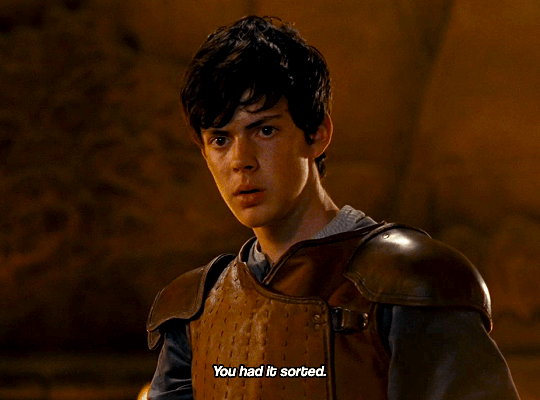
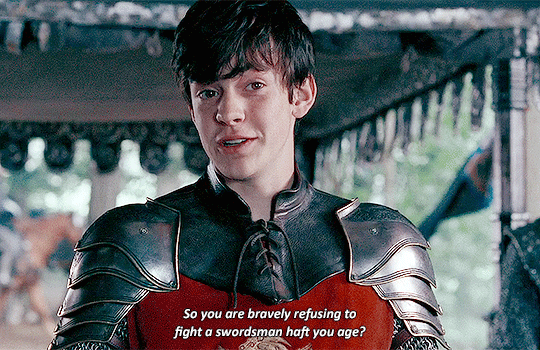
Edmund Pevensie in the Prince Caspian book:
Literally eats dirt

473 notes
·
View notes
Text
Susan Pevensie comes back from Narnia and tries to forget, not because she doesn't believe in Narnia anymore, but because it hurts too much thinking about what she lost.
In Narnia, she was revered, respected. People wrote songs about her, asked for her hand in marriage. She was with her siblings, and she was free, and she could finally stop worrying about her brothers dying in an air raid. She had a people she protected, a land she ruled, and family to look after. She was respected in courts and battefields alike.
Narnia brought other problems, of course. Not all her suitors were kind about her rejection, and Peter and Edmund were expected to lead armies, which meant they were always in the line of fire. More than once had they come home with grave injuries that took months to recover from, even with Lucy's secret potion.
It is this Narnia Susan vividly remembers just aftee she comes back, a wild and savage land where magic roams free, but evil roams free too. It is the Narnia of eternal winter, of giants and ogres, of Aslan dying on the Stone Table. The Narnia of Telmarines, of dead friends, of failed sieges.
England forces her back into obedience, into a mold. Tells her to behave in a way expected of a young lady. Lucy can stay wild a little longer, but Susan has an education to focus on, men to impress. England tells her she is below her brothers again, should get married and have kids.
So Susan tries to forget, convincing herself that the stiff upper lip, tight collars, kneelong skirts, ridicule from adults when she speaks her mind and forced silence is better than the freedom she had in Narnia.
For that freedom had to be paid for in blood. At least in England her family and friends don't risk dying, not after the war.
She alienates from her brothers and sister further. She tells them Narnia was a game, a fantasy. But the difference in faith is also due tk the way she has to hide how it changed her. Peter, Lucy and Edmund do not have to. The boys write long essays about justice and religion, join the fencing team. Lucy dances everywhere she goes and is known to never wear shoes if she can help it.
But the archery club at school will not accept Susan. Neither will the debate team. Her teachers are annoyed with the fact she never slips up, disgruntled at the fact a woman runs rings around them intelectually. Susan is a young woman after a time of war, and all of society would rather she shut up and do what she is told.
Soon, Susan has new friends, new things that matter. All these adult thoughts she can only discuss with her brothers and sister drive her crazy, and there is no one around that takes them seriously. And so she tries to grow up as fast as possible, get to an age where people listen to her again. She forgets so that she doesn't have to deal with the feeling she was meant for much more, to ease the mourning of all that she lost when she kissed Caspian goodbye.
All the Pevensies start forgetting Narnia slowly, the memories fading. Soon none of them remember the names of their generals at Beruna. They forget the smell of battle, the weight of an iron sword in their hands. But they all still walk as if their crowns are on their heads, and ride horses in a way none of their instructors understand. It takes a while before they are back to their Narnian levels, but it is clear to them someone has instructed them before. None of them can figure out what commands they use, however. Is it western style, perhaps? Or maybe rodeo? They cannot have been taught in England, not with the amount of control they can exert with and without saddles, the sense of balance. Some of their teachers are astonished by their academic growth, but others attribute it to the lax education standards after the war. Susan is sold short most often, but all the Pevensie children suffer from arguments with teachers and attitude problems. Teachers generally don't like it if you behave like you are older or more important than them. It's worse because they are almost never wrong, even though all of them feel the effects that having a teenage brain has on their speed of thought and the coherence of their arguments.
The Pevensies deal with these remnants of Narnia in different ways. Susan becomes an actress. She picks West End over Oxford because the stage is a place she is allowed to be free. And since Narnia, dry textbooks don't thrill her like they used to, while the fantasy concepts of spirits and courts and magic and other things thespians work with entince her all the more. Inside her is a longing to become someone else. She knows where it comes from, but she doesn't want to acknowledge it.
Susan plays a queen often, or a diplomat, or a model. Something about her performances have audiences hooked, convinced she was royalty in a different life.
Remembering Narnia hurts. She scolds someone for being reckless with the stage props while teaching them the correct way for a full minute before realizing the person in question is older than her, and doesn't listen to a young woman. He has the same name as her younger brother.
So Susan forgets. But as she carves her way into the elite of old Hollywood, years later, she begins to remember as well. What it's like to have a voice. How it feels like to have people listen.
When Lucy, Edmund and Peter die in the train accident, Susan weeps for days. She knows what she has lost in them. She is now the only person fluent in their interpersonal language, the only one that still remembers the mating call of the centaurs, what jokes a forest spirit makes. She is now truly alone in the world.
Narnia comes rushing back to her during this grieving period. Eventually, she remembers that she used to have a voice, a crown, lovers of whatever gender she wanted. And also how Narnia would have you pay for freedom in blood. They gave up on that freedom to protect her siblings. only to lose them anyways. Suddenly, Susan remembers how Narnia was fair, how a bargain struck was a bargain kept. She remembers the nymphs, the trees in spring. She remembers the beauty of it all.
Later, when Susan is a grown woman and an arrived actor in Hollywood, Aslan begins returning to her dreams. He never speaks to her, but the sight of him gives her strenght. She was once Susan the Gentle, who accompanied Aslan to his death. It is time she returns to being that person.
After the Stonewall riots and during the AIDS epidemic, Susan is the only actress willing to make a public stand. It costs her 2 box office hits and a 3 month ban from the tabloids. But she remembers justice, and the price of freedom. Others start looking to her for wisdom, just like they did all those years ago. Susan feels her quiet strenght returning, her faith slowly coming back.
She stops wishing she could forget Narnia. The magic that was responsible for the memory faded with time. Maybe it was just to protect her from mourning a world where she was so much more.
When Susan looks at the boys coming back from wars in Korea and Vietnam, she recognizes the look in their eyes. Reflected in their behaviour is a maturity that shouldn't be present in teenagers. The loss of innocence, the unrepairable damage to their childhood illusions. It is a look she spent her twenties avoiding mirrors for, because she knew what it meant. No matter what she told herself then, she believed in Narnia. She still does now.
She knows her siblings are in a different place now, and that she revoked her faith in that place, but slowly, as the years grey her hair and wrinkle her face, she begins to believe she may one day join them there. She remembers Aslan as a kind lion, even if he wasn't a tame one.
She grew old in Narnia once, after all. She hopes to die there.
Once a queen of Narnia, always a queen of Narnia
2K notes
·
View notes
Text
C 👏 S 👏 LEWIS 👏 WAS 👏 NOT 👏 MISOGYNISTIC
IM SO SICK OF THIS TAKE
“But he said girls shouldn’t fight in battles—" No, actually. What he said was “Battles are ugly when women fight.” Which literally translates to “in a war where women are required to fight to help win it, it means the war itself is really bad.” And this literally just means that the war has gotten so bad that women have to fight, not that women shouldn’t fight. Just that they shouldn’t be forced to. Anyway, remember Lucy?? Lucy who rode to battle in The Horse and His Boy?? Lucy who fought as an archer?? “But Susan didn’t—" Yeah. Because she didn’t want to. No one was forcing her not to fight. She had free will to fight or to not fight, and she chose not to because she didn’t want to, not because a man made her stay home.
“He punished Susan for growing up—" S i g h. This is the one I see the most often. “He did Susan dirty” “he made her suffer because she liked lipstick” “etc etc blah blah blah” First of all Narnia is a children’s book series. For CS Lewis to delve into why Susan forgot Narnia, talk about her dealing with the death of her entire family, discuss her grief, and write about her eventual return to Narnia (more on that in a second), it would’ve made for a pretty dark and heavy children’s book, and Lewis said that he didn’t think that was something he wanted to write. But he also encouraged people to finish Susan’s story themselves, and said she might eventually make her own way back to Narnia. Not only this, but Susan’s name means lily, and the waters around Aslan’s country are covered in lilies. Coincidence? I think not. I think it symbolizes she was going to go back. (Especially considering I think Lewis was very careful in choosing each of the Pevensie’s names, since they all relate to their character).
Also, Lewis did not condemn Susan simply for growing up and liking makeup and clothing and boys. If so why would he have written about Aravis and Shasta/Cor, or Caspian and Liliandil? Why would he have written about Susan and Lucy being beautiful and having many suitors? So no, he wasn’t condemning her for that, and in fact he wasn’t condemning her at all. It’s extremely probable that her family’s death would have brought Susan back to her senses. Because here’s the thing: she forgot. She threw herself so much into the world and approval and convinced herself that her life as a queen and her acquaintance with Aslan was all a silly game they played as children, that it wasn’t real. But, she very well could remember again, and I 1000% believe she did.
“All his female characters were weak and did nothing—" My friend. Lucy Pevensie was a female. She discovered Narnia. It was because of her. Her siblings would never have found it without her. Lucy is one of THE most important characters in the entire series. And her title? The Valiant. Lucy’s very title as queen denoted her bravery and fortitude without one even knowing her. As for Susan, she was not any weaker for being “The Gentle.” I would say gentleness is honestly one of the strongest traits a person can have, because it takes a lot to live and be gentle. Also remember Aravis? A major character in The Horse and His Boy and future wife of Shasta, Aravis literally nearly killed herself to escape an arranged marriage. She was not someone to be dictated to; she made her own choices and escaped rather than submitting. And in the end, she’s still fiery, just a little more humble and with less of a chip on her shoulder. Then there’s Polly, who is the more logical person in The Magician’s Nephew and tries to stop Digory from ringing the bell that wakes the White Witch. A boy causes her to awaken, not a girl. It was Digory’s fault she woke up, not Polly’s!!
Also, Peter and Edmund do not ignore their sisters because they’re girls. They listen to what they have to say and speak to them as equals. They don’t forbid them from fighting; Susan chooses not to, but Lucy goes straight into the heart of the battle with them! So don’t even say Lewis made his female characters weak. They were the backbone of much of the series and without them much of the plot would never have happened!!
So don’t you ever say to me that CS Lewis was misogynistic because it’s the furthest thing from the truth
1K notes
·
View notes
Text
My favourite thing about The Lion the Witch and the Wardrobe is that CS Lewis very obviously knew that kids were going to go hunting in cupboards and wardrobes for Narnia because multiple times he very clearly states that the kids did not close the door behind them when they climbed in the wardrobe because that would be stupid and dangerous. He knew some kid was going to lock themselves in the closet and he obviously didn’t want to be responsible for that.
1K notes
·
View notes
Text
See, I don't think that the Pevensie kids were uncanny and dangerous upon returning to England so much as just like. Cool weirdos.
Lucy talks to animals sometimes. She doesn't expect responses or anything; it has the same energy as a person talking to their dog, except it's the squirrel she spotted on the quad or the racoon in the garbage. But she's super friendly in general so after the initial "what the heck" everyone shrugs it off because like, yeah, of course she does. She also went with me to a scary doctor's appointment having known me for like five minutes and gave me an incredible pep talk. She's cool like that.
Peter joins the fencing club and day one it's like he's never held a foil in his life and day two he loses to a kid half his size but then after like a month he just absolutely annihilates the instructor. But he's super humble about it and afterwards he helps everyone else out without being condescending at all. And while it's a little weird that he's just Suddenly an expert, people are like, "he's a fast learner, that's cool." He's really industrious in class too, just Peter being Peter. He probably practiced a whole bunch after hours.
Edmund gets extremely weird food cravings sometimes, like "wow, I could really go for chicken liver with raisins right about now" or "you guys know what's great? Gooseberry trifles." And his friends say, "I've never heard of that before but it sounds weird." So Edmund learns to cook and starts making all these vaguely antiquated fancy dishes with weird berries and organ meats and things and shares them around during study breaks and everyone's like "Yo! Pevensie brought food. Cool, thanks Pevensie." And he shares it with everyone, even the kids nobody likes, and it kinda brings people together.
Susan, who was always the Mom Friend, seems to have gotten a power-up because now she Everyone's mom and weirdly people actually listen to her? But she only uses those powers for good. Girl in her dorm not eating enough? Susan's here with snacks and look at that now she's eating. Those guys arguing look like they're about to throw down? Susan says "knock it off" and glares and they do. And her friends are like, "how do you do it???" and she says "You just have to act like you expect to be obeyed." It's very cool, though it can be a bit Much sometimes.
And they're all into mythology now? Like ancient Rome and King Arthur and stuff? That's kinda weird, but not off-putting; lots of kids have mythology phases. And Peter named the tree outside his dorm, but everyone kinda laughs and says "yeah okay." Edmund is adamantly anti-bullying now, it's nice. Susan and Lucy wear a lot of lion-themed jewelry and people definitely Notice, but that just means that they start getting more of it for Christmas/birthdays.
And of course whenever two or more of them are together it's like they've got a conspiracy going on. They're always fervently whispering back and forth, giggling an the million inside jokes they've got, giving each other Looks. And onlookers are mostly just like, "Man, it's cool that those Pevensie kids are all so tight; I wish I was that close with my siblings."
4K notes
·
View notes
Text
Random friend: Helen Pevensie, your children are just so well behaved and mature. I can’t imagine having children who act as nicely as yours do.
“Pile on Pete!” Lucy yells and they all jump onto Peter who grunts and grumbles but doesn’t push them off.
Peter and Edmund hitting each other with sticks in the back garden
Susan and Peter telling Edmund to eat his vegetables and him telling them that he’s an adult and he will eat his vegetables when he wants to. And to back off.
Lucy climbing a tree in her nice clothes because “I’m really good mum don’t worry it’s like the trees taught me”
Susan sneaking back inside at midnight with an empty quiver and bow. “I can explain”
Peter and Edmund routinely leaving school grounds on weekends to see Lucy and Susan at their own school.
Lucy spending more time with girls twice her age than other 10 year olds.
Edmund always sneaking away from the children’s section in the library and getting books on gory battles and great military failures.
Peter getting in fights over stepped on toes.
Lucy fighting bedtime every chance she gets.
All of them accidentally drinking wine on more than one occasion because they saw the glass and didn’t think about where they were.
Lucy somehow knowing how to punch.
Edmund ‘borrowing’ a horse from the school coach house to go riding over the weekend while he was bored.
Susan always spilling flour over the kitchen when she’s tasked with dinner and Peter can’t do dishes without soaking everyone in the kitchen.
All of them being terrible about cleaning up after themselves because they got so used to having staff to do those sorts of things.
Lucy forgetting electricity is a thing and taking candles to read in the dark, which half terrifies her parents. She gets lots of playing with fire lectures.
Edmund and Lucy releasing all of their cousin’s science project subjects.
All four of them routinely covered in mud and brambles from the woods.
“Yes, I’m not sure how they all got to be like this,” Mrs. Pevensie laughs awkwardly. “It certainly wasn’t me.”
1K notes
·
View notes
Text
The Pevensies are foreign when they return home.
The streets no longer know them. They do not seem to fit in their own bodies as they stroll the cobbles, Lucy’s hand tucked carefully into Peter’s, Edmund trailing watchfully behind Susan like a shadow. Their eyes are sharp, their smiles crooked, and those who see them cross to the opposite side of the road, afraid of the ancient gleam they see reflected back at them that does not belong in the eyes of a child.
Water murmurs to Lucy when she flits past, and lamplight follows her wherever she goes, even in broad daylight when the lamps are unlit. Their flames sputter into existence when she walks by, flickering at her in a way that seems to whisper I know you. Lucy looks at them with feral teeth and smiles, and vines twist from the cobbles at her feet. She laughs like a wild thing, eyes glowing, but a moment later she blinks and it is gone. Her feet hardly seem to touch the ground at all as she darts through the alleys.
The sky is clearer when Peter walks the streets, clouds vanishing like they were never there at all. His eyes are too much like a lion’s, struck through with gold and filled with a brooding fierceness, yet he laughs as he twirls Lucy around, and claps Edmund on the back as they share a stupid joke, and smiles with Susan when she tells him of the bow she plans to carve. He is all warmth and friendliness, but there is something about his eyes. There is something about all of their eyes.
The sun caresses Susan as she moves about, and she is graceful, too graceful, her hair seeming to be alive of its own accord as she steps lightly along the streets. Her skin is pale like ice, and sometimes her gaze appears almost silver as she stands by the river, gazing into its depths with a distant, siren-cold smile. She is gentle, but her fingers look a little too long sometimes. Her laugh is a little too unsettling.
Trees lean towards Edmund when he walks past, branches scraping his clothing, leaves showering around him. Books and journals and pages covered in notes perpetually fill his arms, spilling from his grasp but never quite falling. His voice is even-keeled, quiet, but there is something wild about it, something unhinged. He speaks of things none have ever heard before, dark hair falling into his eyes, mouth unsmiling and hands perfectly still, and for a moment he seems to be someone else, fangs beneath his lips, dirt on his tongue. He tilts his head just a little too far, sometimes.
The Pevensies are foreign when they return home. They do not fit their bodies. They do not fit the streets. People who encounter them cross to the other side of the road to avoid them, terrified of the oldness they see in the children’s faces. Such depth does not belong in the gaze of a child.
And yet four sets of eyes, ancient and deep and flickering like candlelight, stare out from the children’s faces, and their smiles are sharp, too sharp. Their laughter is a little too wild as they walk, the oldest and youngest hand-in-hand, the middle children trailing each other like shadows.
There is something about those children’s eyes.
There is something about those children.
2K notes
·
View notes
Text
knew i was right for looking up to lucy pevensie from childhood

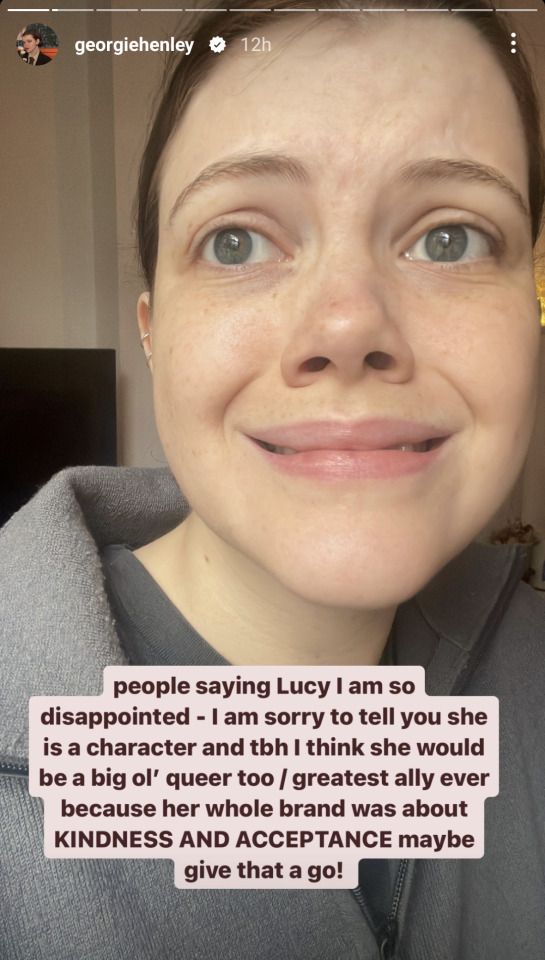

2K notes
·
View notes
